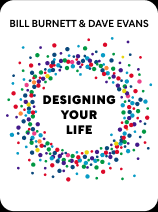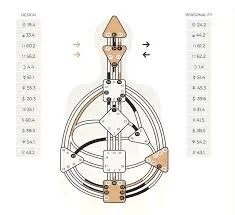Imagining Three Possible Futures: The Power of the Odyssey Plan
When I first discovered the Odyssey Plan, I was struck by its simplicity and its power.
It’s a tool, developed by Professors Bill Burnett and Dave Evans (Stanford University’s design program), that invites you to imagine not one, but three different futures for yourself.
As adults, we often narrow our view of what’s possible. We follow a path that makes sense, the one we’ve built, invested in, and that others expect from us. Yet there’s rarely just one version of our future waiting ahead.
The Odyssey Plan helps open that perspective again.
It asks you to design three possible lives for the next five years:
The logical one: the path you’re already on, continuing to grow in the same direction.
The alternative: something you’ve thought about but haven’t dared to explore yet.
The wild one: a complete reimagining, if there were no limits, what would you do?
When I work on an Odyssey Plan with my clients, the first reaction is often practical: “Three versions of my life? I barely have time to think about one.”
Yet once people start sketching ideas, something shifts. The exercise doesn’t ask for big decisions, only for curiosity.
I use it as one of several tools, alongside the CliftonStrengths assessment and values exploration, to help people take a step back, look at their trajectory with perspective, and reconnect with what gives direction and meaning to their choices.
It’s less about inventing new paths than about surfacing what’s already there: things you’ve considered, dismissed, or quietly postponed. Seeing them side by side often makes patterns visible, what keeps coming back, what feels energizing, and what no longer fits.
What emerges from the exercise
“The secret to happiness in life design isn’t making the right choice; it’s learning to choose well.” (Burnett & Evans)
What really emerges from it is:
Gathering & Creating Options
Prototyping them
Choosing
Fully embracing the decision
A plan that isn’t about planning
The Odyssey Plan is a reminder that life doesn’t have to be linear. We evolve, circumstances change, and so do our priorities. Imagining several futures is not a sign of indecision; it’s a sign of awareness.
As Dwight D. Eisenhower said, “Plans are worthless, but planning is everything.”
Why CliftonStrengths Is Not Just Another Personality Test
When I introduce CliftonStrengths, I often hear: “Isn’t this just another personality test?” And it’s a fair question. Many tools leave people feeling labeled or reduced to a type, or even a color.
Instead of telling you who you are (which is really something only you can do), it shows you where your energy comes from and how to use it more intentionally.
Energy, not labels
Strengths are not rigid categories. Two people with “Analytical” can look completely different: one loves exploring data, another uses analysis to challenge assumptions. Same theme, different expression. CliftonStrengths doesn’t confine you, it gives you language to describe how you naturally operate.
Permission to stretch
One client of mine discovered “Activator” in their top themes. Until then, they felt guilty about always pushing for quick wins. With new awareness, they stopped apologizing and started using this drive to spark momentum in the team. Strengths don’t restrict; they expand what’s possible when you lean into them.
A shared language in teams
Most conflicts come from misinterpretation. “Why does she always question everything?” can feel irritating, until you see that her “Context” strength is helping the team make better decisions. CliftonStrengths helps people shift from judgment to appreciation, making trust and collaboration easier.
My top 5
My top five are Individualization, Adaptability, Arranger, Empathy, and Relator. They shape the way I coach: I quickly see what makes each person unique, adapt to different contexts, bring order to complexity, tune into emotions, and build trust through close relationships. I see my strengths as tools for connecting and bringing out the best in teams, not rules I have to follow.
Human Design got me curious
To Be and Not to Be: What Human Design Taught Me
I’ll be honest: when I first heard about Human Design, I was skeptical. That was back in March 2025. Since then, I must have come across it a dozen times, and eventually curiosity caught me. I decided to give it a try.
For those unfamiliar, Human Design is a system that blends elements of astrology, the I Ching, Kabbalah, and the chakra system. The idea is to create a kind of “map” of how you’re wired, your strengths, tendencies, and decision-making style. It’s not science, but rather a framework for reflection.
I turned out to be a Generator, which probably doesn’t mean much if you haven’t looked into it. As I read more (with ChatGPT helping me decode it first), I realized how interesting it was. Not just to understand what being a Generator involves, using energy sustainably, trusting my intuition, responding to life, but also to see clearly what I’m not. That part was surprisingly freeing.
It gave me another lens to look at myself, and sometimes that’s exactly what we need: a shift in perspective to shake up our thinking. I bought a book, did more research about it and have decided to bring it into my individual coaching sessions as an additional tool for reflection.
You can test it yourself for free. All you need is your birth information (the exact time matters). You can pull up a free chart on a site like mybodygraph.com and see what it says.
My recommendation: Read it as a hypothesis. Test the strategy for a week. Notice if it brings a little more ease, a little less resistance.
Confidence: Borrowed, Built, Shared
Many people believe confidence is something you either have or don’t. If you feel like you don’t have enough, you’re not alone, and it doesn’t mean you can’t build it.
In La Confiance, Charles Pépin, a French philosopher, explains that confidence often begins outside of us. As children, we dare to take our first steps because someone holds our hand. Later, we find courage because someone believes in us. We start by borrowing confidence until it becomes our own.
This ties closely to the “Care & Dare” principle I explored during my program at IMD. When we feel cared for, we trust that someone has our back. When we are dared, we’re encouraged to step outside our comfort zone. Together, Care & Dare create the conditions where confidence can grow, in individuals and in teams.
If you’re struggling with confidence this week, try to notice where you can lean on care (support, encouragement) and where you might stretch with a little dare (taking one small risk). One doesn’t need to erase doubt to feel confident; one just needs to take one step despite it.




